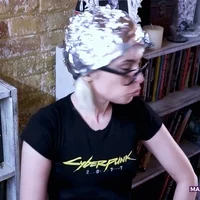Some vaccine
doubters may be swayed by proximity to disease outbreak
PLOS
 |
| Resistance to vaccination goes back to the 1800s and efforts to rid the world of smallpox. Wikipedia photo. |
An individual's trust in
institutions such as the CDC, and how close they live to a recent measles
outbreak, may affect their attitudes on measles vaccination, according to a
study published August 28, 2019 in the open-access journal PLOS ONE by
Florian Justwan of the University of Idaho, USA, and colleagues.
In both the US and globally, there
is growing vaccine hesitancy, which can manifest itself in increased
non-medical exemption rates, decreased vaccination rates and increased
outbreaks of vaccine-preventable diseases.
The formation of attitudes about vaccination
is complex and linked to many factors including media and peer group influence,
distrust of science, information access, and socio-economic barriers.
In the new study, researchers
surveyed 1,006 online respondents across the United States about their
political beliefs, vaccination attitudes and demographics.
The survey was
carried out in January 2017, following local outbreaks of measles in 2016. The
respondent pool was generated by a market research firm to be a nationally
representative sample of the U.S. voting age population and the final sample
matched known population in terms of gender, age, income race and Census
region.
 The researchers found that an
individual's proximity to a measles outbreak independent had no independent
effect on measles vaccination attitudes (p = 0.43). However, they found that
trust in government medical experts is strongly and positively related to
vaccination attitudes (p=0.01).
The researchers found that an
individual's proximity to a measles outbreak independent had no independent
effect on measles vaccination attitudes (p = 0.43). However, they found that
trust in government medical experts is strongly and positively related to
vaccination attitudes (p=0.01).
Moreover, the study uncovered an interactive
relationship between the two variables. People who are skeptical of the CDC and
similar institutions and live farther away from a disease outbreak harbor less
favorable vaccination views than those who are skeptical but live in close
proximity to an outbreak.
People who have high levels of trust are not affected by disease proximity.
People who have high levels of trust are not affected by disease proximity.
The research therefore suggests
that, unlike people who trust government experts, people who are skeptical of
the CDC and similar institutions may consider whether or not a given disease
occurs nearby when making decisions about vaccination.
Justwan adds: "In this paper,
we explore whether people's vaccination attitudes with regards to measles are
shaped by how far away they live from a recent outbreak. We find that this is
the case -- but only for individuals who also distrust government medical
experts. Put differently: citizens who are skeptical of the CDC and similar
institutions base their vaccination decision-making to some degree on whether
or not a given disease occurs in close vicinity to their community."